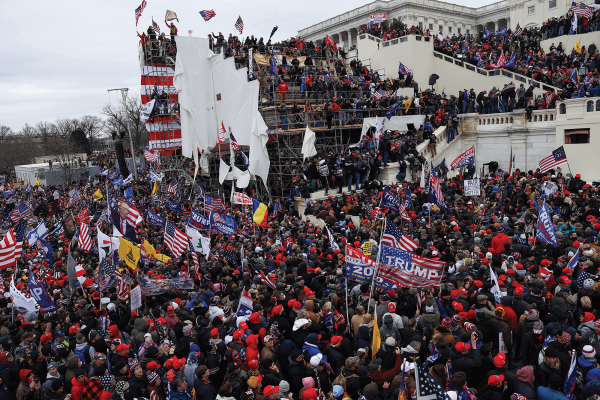LIKE THE FRENCH police officer in Casablanca who was “shocked, shocked” to find gambling in Rick’s Cafe, in the wake of the Jan. 6 riot at the U.S. Capitol, social media companies were “shocked” to discover violent anti-Semitic and white nationalist agitators lurking in plain sight on their platforms. With their usual earnest hypocrisy, the companies took action, banning tens of thousands of groups and individuals from the social media universe. Facebook and YouTube suspended Donald Trump’s accounts. Twitter permanently banned him.
Never mind that in the preceding days and weeks those same social media platforms hosted the planning for Jan. 6, or that for years they have profited from a business model that ignores truth and promotes outrage. But when some of their more unruly customers got off the leash and started threatening the people who write antitrust laws, Facebook, Google, and Twitter suddenly became tribunes of civility.
Of course, such monumental hypocrisy from Big Tech gave many Republican politicians the opportunity to change the subject from their own possible complicity in the insurrection to what they claim is suppression of free speech by the liberals in Silicon Valley. To this, clever liberals have replied that the First Amendment only applies to government, not to private corporations.
Read the Full Article

